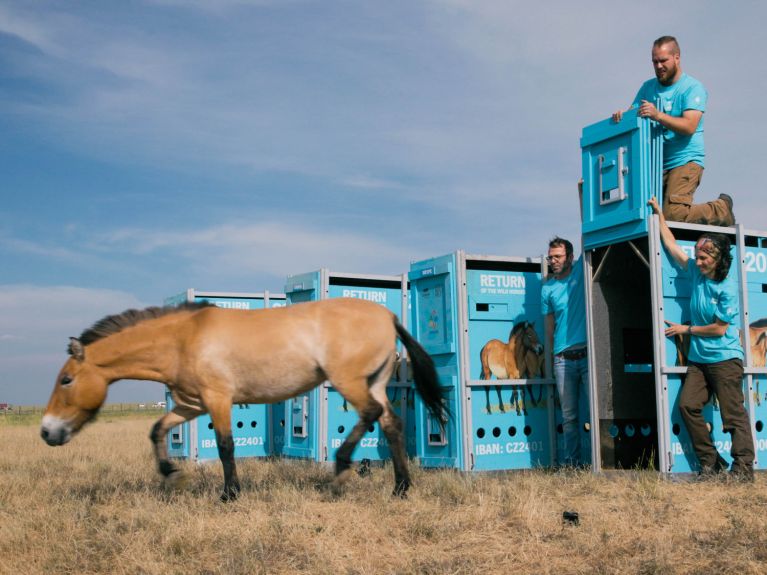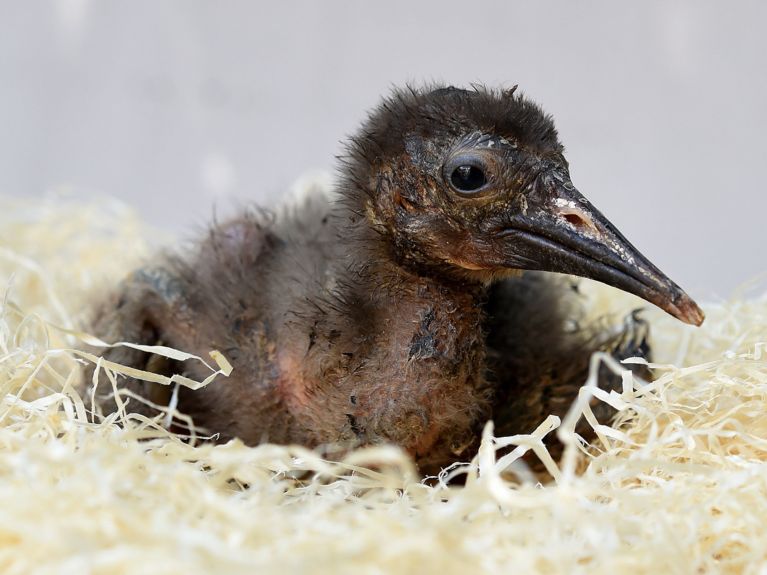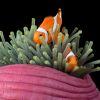From captivity into freedom
Northern bald ibises in Spain, turtles in Asia, wild horses in Kazakhstan: the important role German zoos play in species conservation.

Where would the northern bald ibis be were it not for zoos? Extinct, probably. Hardly any of these birds had been seen in the wild in recent years. Centuries ago it was considered a delicacy and hunted virtually to extinction. Now it is back, however. This year, Heidelberg Zoo took four young northern bald ibises to Jerez de la Frontera in Spain. The migratory birds joined a breeding project there and were released into the wild - thanks to this successful project there are once again wild northern bald ibises. This large-scale conservation project has been supported by many zoos in Europe, including Walsrode bird park in Lower Saxony.

The importance of zoos when it comes to preserving biodiversity should not be underestimated. Jörn Junhold, director of Leipzig Zoo and president of the German Association of Zoological Gardens, even wants zoos to be included in Germany’s National Biodiversity Strategy 2030. The association argues that zoos educate the population and preserve species such as the northern bald ibis. Around 50 species of animal have already been saved from extinction by zoos, with 19 zoos even boasting their own reintroduction stations. On average, German zoos are home to 171 different species of animals, nearly one in five of which is threatened in the wild.
Breeding and reintroduction
Preservation and reintroduction projects need one thing above all: time. For over 20 years, Münster Zoo has been home to the International Centre for the Conservation of Turtles, which was co-founded by private individuals determined to rescue turtle species from Asia that are threatened by extinction. The zoo in Münster has successfully managed to breed Zhou’s box turtles. In fact, the experts at Münster Zoo are the only people to have successfully bred another critically endangered species - the Sulawesi forest turtle - in Europe. Considerable challenges remain despite such successes, however: it has not yet proven possible to permanently reintroduce the turtles to the wild.
Dieses YouTube-Video kann in einem neuen Tab abgespielt werden
YouTube öffnenThird party content
We use YouTube to embed content that may collect data about your activity. Please review the details and accept the service to see this content.
Open consent formThat said, some remarkable progress has been achieved with another species of animal: in 2024, Przewalski’s horses were reintroduced into Kazakhstan for the first time, four of the seven wild horses having come from Tierpark Berlin. Alongside three horses from Prague, they now form a new herd - another milestone in the battle for biodiversity.



